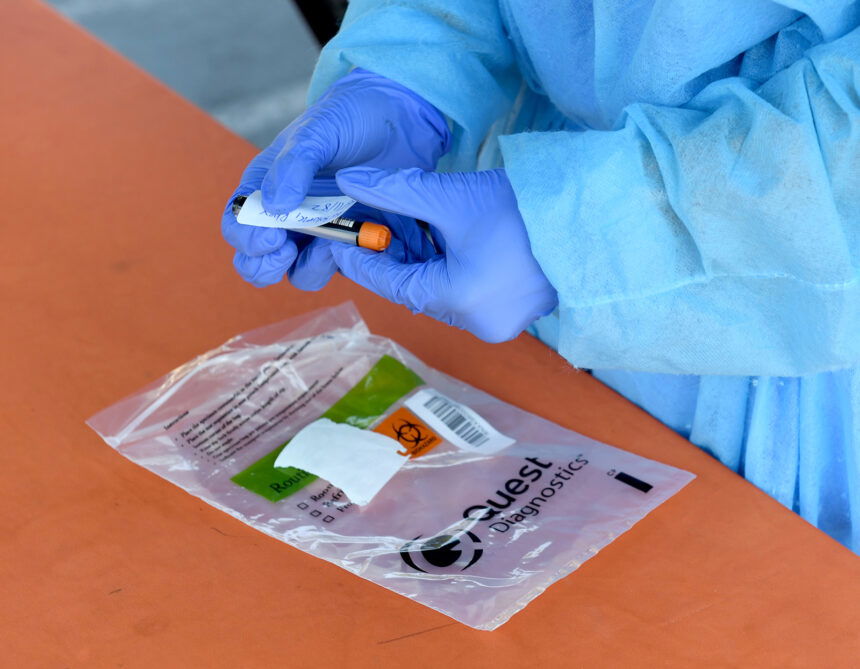Fabens & Ysleta ISDs among 8 Texas school systems to get rapid virus tests in new pilot program

FABENS, Texas -- The Fabens and Ysleta independent school districts will be part of a new pilot program involving eight Texas school systems to provide coronavirus tests with results in 15 minutes or less to staff and selected students, local and state officials said Friday.
Fabens ISD said it would close its school campuses all next week, opting instead for remote learning during that time, due to rising virus cases in the community as it prepares to implement the new Covid-19 rapid antigen testing. Ysleta ISD just extended its fall intercession to keep students on break until Oct. 26.
The pilot program is meant to help schools conduct rapid tests of employees and students who have written permission from parents. Health experts have said accessible, rapid testing could help the state achieve substantive widespread Covid-19 testing, an elusive public health goal for Texas and much the country.
"As more students return to campus for in-person instruction, the State of Texas is working alongside school officials to provide resources to mitigate the spread of Covid-19 among students and staff," said Gov. Greg Abbott.
John Wittman, a spokesman for Abbott, said the tests are part of the millions being provided to Texas by the federal government. The medical company producing the tests said the antigen tests require a nasal swab, cost $5 and are about the size of a credit card.
Through the program, the Texas Division of Emergency Management will provide the tests to school systems, which will receive personal protective equipment to administer them to willing participants. The Texas Education Agency said it will provide a monthly allotment of tests to each school system. The agency said the school systems will determine how the tests will be conducted because they know "what works best for their school and community," and each school system will provide test administrators to give the tests.
"Thank you to the U.S. Department of Health and Human Services for providing these advanced antigen tests to the State of Texas,” Abbott said in a statement. “This rapid testing pilot program will be an effective strategy to protect the health and safety of students and staff while helping to further ensure that Texas students have access to a quality education throughout the pandemic and beyond."
In addition to Fabens and Ysleta, the six other Texas school districts participating in the launch of the program include: Bob Hope School in Port Arthur, Grace Community School in Tyler, Granger Independent School District, Lampasas Independent School District, Longview Independent School District, and the Harlingen Consolidated Independent School District.
Other public and private schools interested in the program can apply through the TEA no later than Oct. 28, officials said.
Wittman said implementation and testing will be “ramped up significantly,” he said, but first any issues need to be worked out in the pilot program.
Rapid antigen tests, which can detect proteins on the outside of the virus, are more prone to giving false negative results than other coronavirus tests that use genetic material.
The U.S. Food and Drug Administration says that a positive test result on an antigen test is “highly accurate,” but “antigen tests are more likely to miss an active coronavirus infection compared to molecular tests.”
But Joseph Petrosino, chair of molecular virology and microbiology at Baylor College of Medicine, said in an interview that the tests are most useful in settings such as schools because the same people can be tested every three to four days, eliminating the chances of having a false negative result.
